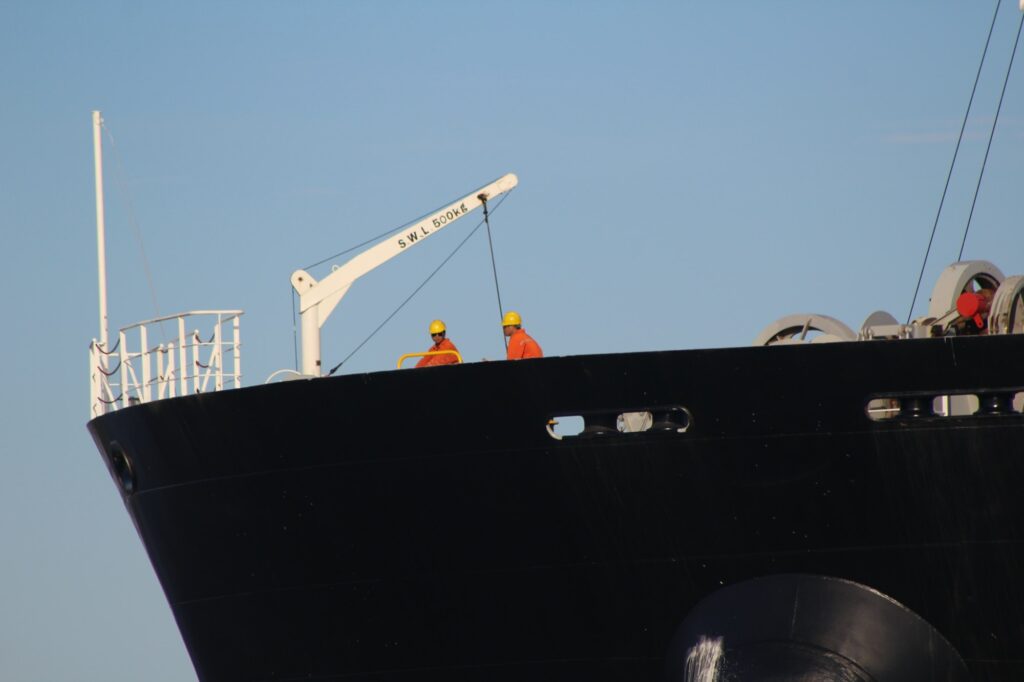GoodFuels, in collaboration with Hyundai GLOVIS, have announced the successful completion of the first biofuel bunkering with a South Korea-flagged pure car and truck carrier (PCTC).
Named GLOVIS SUNRISE, this vehicle carrier is the first-ever Korean-flagged PCTC to sail on biofuels.
GoodFuels considers this bio-bunkering a milestone, as promoting the usability of sustainable “drop-in” fuel takes centre stage in the company’s sustainability strategy.
“This first bio-bunkering in collaboration with Hyundai GLOVIS marks an exciting milestone towards decarbonised maritime transport and more sustainable supply chains,’ stated Dirk Kronemeijer, CEO of GoodFuels. “It also shows the central role that biofuels can play in reducing shipping’s carbon footprint today as a safe, convenient, and technically viable option to slash emissions from commercial vessels by up to 90%.”
Sustainable Marine Fuel can Curb CO2 Emissions
Even though vital for trade, the shipping sector contributes significantly to climate change. This sector alone requires over 330 Mt of fuel in a year and spews out 2-3% of the world’s total CO2 emissions.
In 2021, waterborne transport accounted for around 3% to 4% of greenhouse gas (GHG) emissions in the European Union (EU).
With the maritime industry responsible for carrying roughly 90% of world trade, decarbonising this sector has long been considered a dire necessity.
That said, years after sustainable marine fuels were first introduced as an alternative to petroleum-based fuel in the shipping industry, uptake remains remarkably limited.
However, steps are being taken to curb greenhouse gas emissions from the shipping industry.
For example, In March 2023, a ‘groundbreaking’ agreement has been inked between the European Parliament and the Council to help the maritime industry reduce ship emissions by 2% as of 2025 and 80% as of 2050.
Experts unanimously agree that biofuels hold the potential to provide almost the same efficiency as fossil-based marine fuel but with a much smaller carbon footprint. For example, sustainable marine fuel can offer more than 70% reduction in well-to-wake GHG emissions than its fossil fuel equivalent, based on the feedstock and conversion process used.
However, with the increasing bio-content in sustainable marine fuels exacerbating microbial contamination, preventing the growth of microbes has now become dire.
Businesses looking to improve their fuel management use periodic marine fuel tests with kits like FUELSTAT®, so that that contamination can be identified at the earliest stages and before any safety/operational disruptions incur hefty losses.
More About the First Korean-Flagged Bio-Bunkering
During its port visit to Vlissingen (Flushing) in the Netherlands on 28th December, vehicle carrier GLOVIS SUNRISE was reported to be refuelled with 50 Mt of 30% sustainable biofuel blend produced by GoodFuels.
The trial was executed during the PCTC’s journey between Europe and the Persian Gulf, which was successfully concluded this January.
According to GoodFuel, the sustainable marine fuel that powered GLOVIS SUNRISE was 100% waste and residue-based and met the highest sustainability requirements.
This marine fuel supplied by GoodFuel is claimed to provide 80% to 90% well-to-exhaust CO2 reduction compared to its petroleum-based fuel equivalent.
Due to the drop-in properties of the biofuel, it required no changes in the fuel tank or engine to power the PCTC.
Hyundai GLOVIS expects this partnership will offer the company solid footing for significantly decoupling GHG emissions from its fleet of 153 vessels while also fostering its capabilities for eco-friendly green logistics.
Headquartered in Seoul, Hyundai Glovis is a global logistics company that offers businesses optimal strategic services. The company is committed to continuously evolving and delivering greater sustainability across its logistics and shipping activities.
